What is the reason why there is no hamburger for hand-made coffee? What if the steamed coffee powder does not expand?
introduction
When brewing coffee, when the hot water comes into contact with the dried coffee powder, it will bulge a big "burger", which is very healing. But sometimes coffee doesn't form a hamburger after the water is poured. How is that possible?
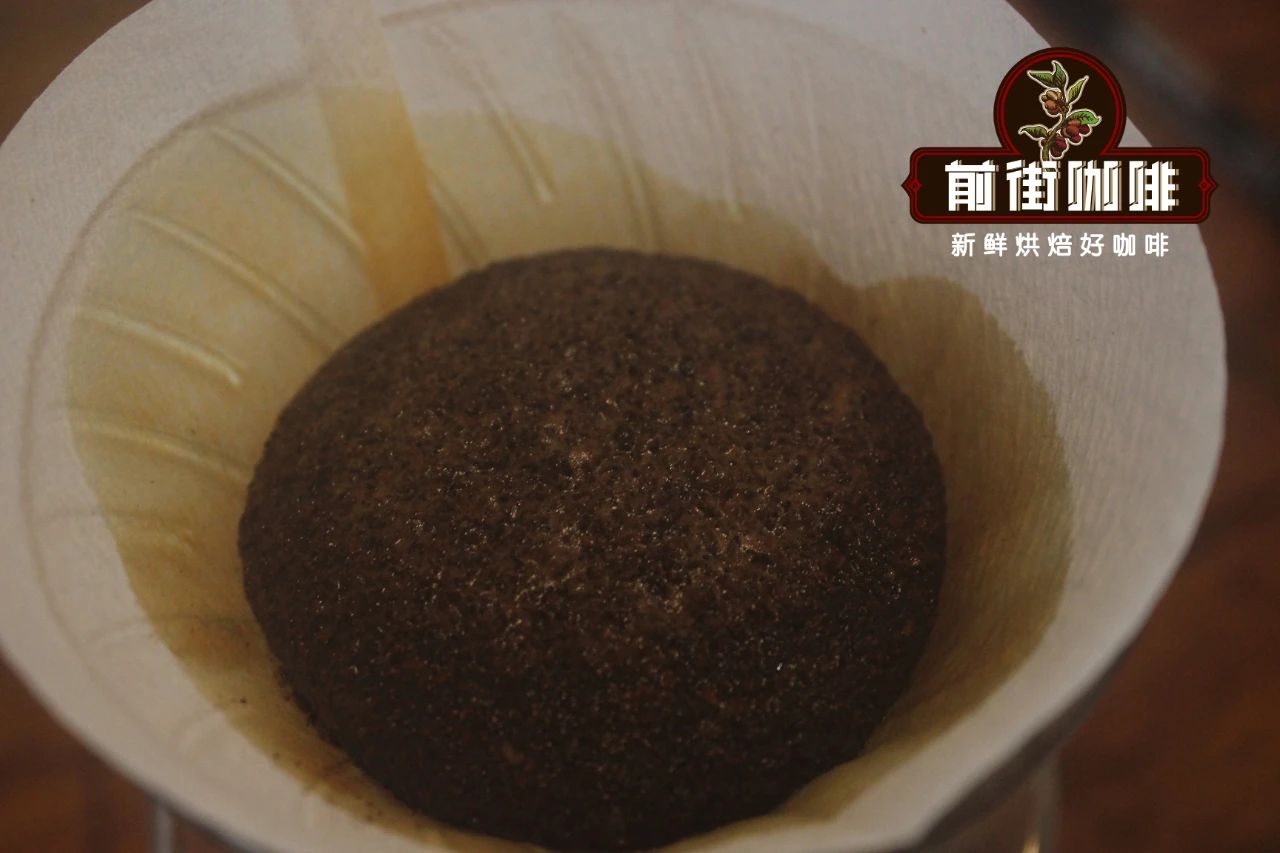
Reason 1: Coffee beans are not fresh
In the first stage of steaming, coffee expands because the beans contain carbon dioxide gas after roasting, which expands and releases carbon dioxide gas when exposed to water. But coffee beans continue to emit gas after roasting, and when the gas is almost exhausted, it will not expand into a hamburger when it encounters water. The amount of gas in coffee can also show the freshness of coffee beans. So Front Street Coffee judges whether a coffee bean is fresh or not based on how much it swells during steaming.
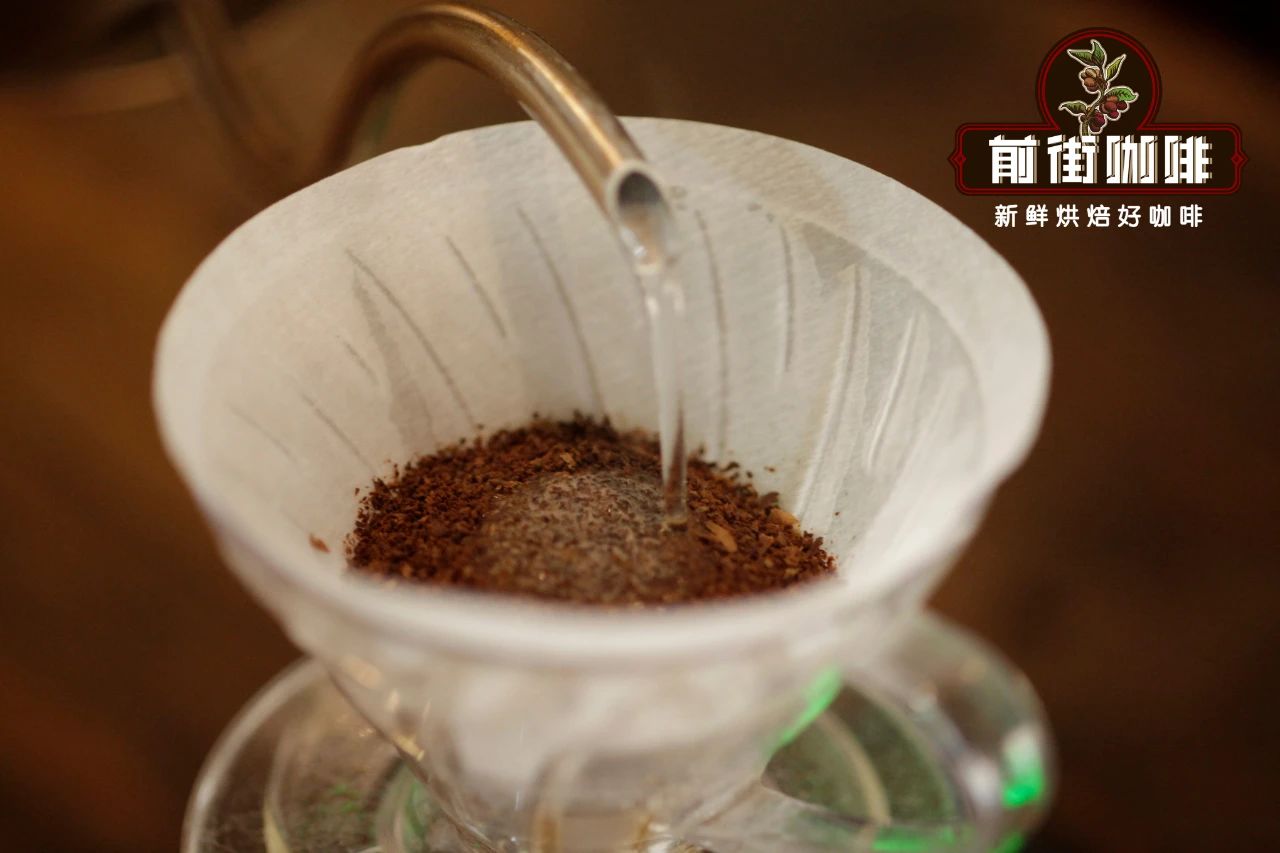
As for why the taste of fresh coffee beans is about 1 month. Because most coffee beans end up emitting carbon dioxide in about 30 days. But this is not absolute, some coffee beans will take longer to exhaust (also related to the storage method). Therefore, it is a scientific method to confirm whether coffee is fresh by the degree of expansion of its burger during steaming.
Reason 2: Coffee ground too coarse
The thickness of coffee powder will also affect the expansion state of coffee, when the coffee is ground coarsely, the coffee particles will be large, then the time required to saturate the water absorption will be longer, then the exhaust effect will be poor, so the degree of expansion will be smaller, and there will also be "Hamburg" center collapse phenomenon. The reason for this is that coffee powder is too coarse and steamed too long.
Even if the grind exceeds the coarseness of the grind range for hand-brewed coffee, water flows into the lower pot due to the influence of gravity without being fully extracted. Then there will be no expansion.
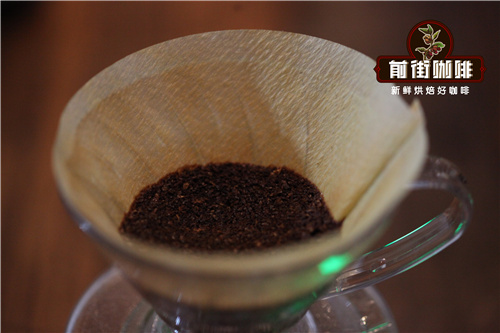
Therefore, it is very important to choose the correct grinding degree. The grinding calibration of Qianjie coffee is calibrated by using a sieve with an aperture of 0.85mm. The fineness of hand-brewed coffee is selected at a grinding degree of 80% through the sieve.
Reason 3: The water temperature is too low
Water is the main medium for extracting coffee, the higher the water temperature, the more active the water molecules, the higher the efficiency of water penetration into coffee powder; the same, the lower the water temperature, the more stable the water molecules, then the efficiency of penetration into coffee powder is lower. Therefore, when the low water temperature is stewed, the gas in the coffee powder is slowly discharged, and it is difficult to form a coffee "burger". Through experiments, Qianjie concluded that in the case of stable other parameters, the water temperature above 80 ° C can form a coffee "burger". However, it is generally recommended to use 86-93℃ before brewing.
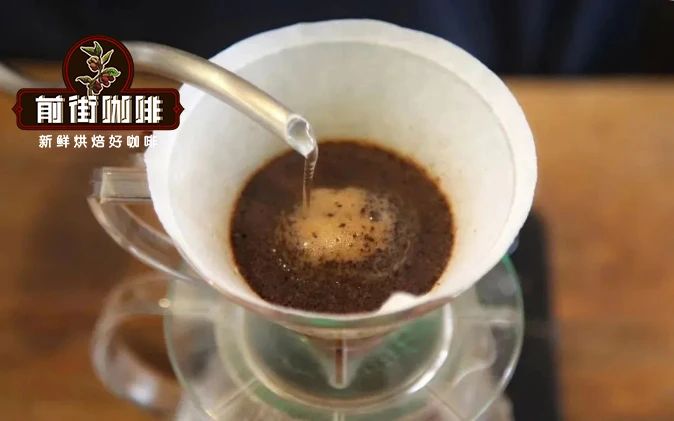
Reason 4: Shallow baking degree
The deeper the coffee roasting, the looser the internal fiber structure, the better the water absorption and exhaust. On the other hand, the shallower the coffee roast, the more complete and dense its structure, the worse its water absorption and exhaust performance. So some very lightly roasted coffee in its fresh state doesn't have much of a "burger."
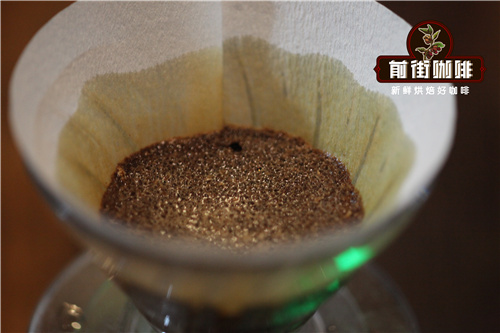
Important Notice :
前街咖啡 FrontStreet Coffee has moved to new addredd:
FrontStreet Coffee Address: 315,Donghua East Road,GuangZhou
Tel:020 38364473
- Prev
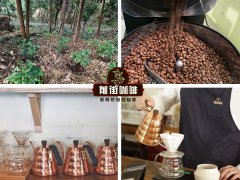
How to adjust the brewing technique of hand-brewed coffee the correct way to make coffee basic knowledge of coffee
There is a saying in the coffee industry that a good cup of coffee accounts for 40% of the coffee varieties, planting and processing techniques, 30% of the coffee baking quality, 20% of the brewing utensils and water quality, and the remaining 10% is the understanding and technical ability of brewing. What this sentence says is that in the process of selecting, planting, processing, roasting and brewing a cup of coffee, the more upstream the coffee flavor is.
- Next
What kind of water do you use to make coffee? Will pure water make coffee sour? Can I make coffee with mineral water?
Maybe you are using good coffee beans, and the brewing parameters are all right. But there is always some negative flavor in a cup of coffee. Then it's probably the water. You might say that water is colorless and tasteless, up to the drinking standard, isn't it all the same? Then you may have ignored the existence of minerals. Calcium ions, magnesium ions and carbonic acid are more or less found in impure water (distilled water).
Related
- Beginners will see the "Coffee pull flower" guide!
- What is the difference between ice blog purified milk and ordinary milk coffee?
- Why is the Philippines the largest producer of crops in Liberia?
- For coffee extraction, should the fine powder be retained?
- How does extracted espresso fill pressed powder? How much strength does it take to press the powder?
- How to make jasmine cold extract coffee? Is the jasmine + latte good?
- Will this little toy really make the coffee taste better? How does Lily Drip affect coffee extraction?
- Will the action of slapping the filter cup also affect coffee extraction?
- What's the difference between powder-to-water ratio and powder-to-liquid ratio?
- What is the Ethiopian local species? What does it have to do with Heirloom native species?

